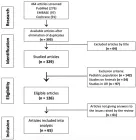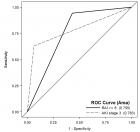About Santa Maria de Benquerencia, Regional Health Service of Castilla la Mancha (SESCAM)
Santa Maria de Benquerencia, Regional Health Service of Castilla la Mancha (SESCAM)
Articles by Santa Maria de Benquerencia, Regional Health Service of Castilla la Mancha (SESCAM)
Transference and countertransference are linked to placebo-nocebo effects and they are an auxiliary resource of unparalleled value in general medicine: Recommendations for general practitioners
Published on: 28th February, 2020
OCLC Number/Unique Identifier: 8541457152
Psychological phenomena of the doctor-patient relationship influence the therapeutic process. Among these phenomena are the transference (the emotions of the patient towards the doctor), and the countertransference (the emotional reactions of the doctor towards the patient). Doctor and patient are within an interactive relationship in a conscious and unconscious way: the patient is influenced by the doctor, and vice versa. Doctor is solely responsible for the control of transference and countertransference, since patients do not have a conscious perception of these phenomena. In general medicine the transference/countertransference have connotations of placebo effect and nocebo. The challenge of the doctor-patient relationship for the doctor is to realize the transference and countertransference phenomena and use them to achieve placebo effects and minimize the nocebo, and also respecting the needs of both parties, so that to improve the quality of clinical practice. Under these conditions, transference and countertransference are auxiliary resources of unparalleled value.
Psychological phenomena in the doctor- Elderly patient relationship
Published on: 8th April, 2020
OCLC Number/Unique Identifier: 8572406620
The doctor-patient communication and the aging of the patients attended by the general practitioner are two important concepts that constantly impact medical consultations. This article raises some reflections and conceptualizations about the main psychological phenomena that have a special importance in the doctor-elderly patient communication and relationship: 1) Stereotypes and prejudices; 2) Regression; 3) Transference, countertransference and resistance; 4) Rapport; 5) Empathy; and 6) Paternalism. The GP must be alert about what affecting the communication with the old man and he should put the means to get a warm relationship. Consequently, to achieve effective communication with an older adult: The GP have to take it easy; to be patient; avoiding stereotypes and prejudices; allowing the patient to establish a benign regressive relationship, until if it is possible due to the biopsychosocial context of the elderly patient, he can begin the non-regressive relationship again; recognizing fact of transference, which put the doctor in another place, is inevitable, but taking into account that it greatly affects his relationship with the patients; avoiding countertransference; considering that the therapeutic alliance or rapport is particularly fragile in elderly patients with chronic diseases; giving greater importance to empathy; knowing that the elderly patient frequently accepts the authority of the doctor, but avoiding falling into an iatrogenic paternalism; and smile.
Implications on mental health by the coronavirus disease 2019 (COVID-19) pandemic: The role of general practitioner
Published on: 5th May, 2020
OCLC Number/Unique Identifier: 8588739409
Coronavirus disease 2019 (covid-19) pandemic gives rise to a significant number of psychological consequences and health problems. The GP must recognize the feelings generated in their patients and address them. This task includes 4 areas: 1. Knowing and managing the epidemic of anxiety and fear in patients; 2. Assessing possible de-compensation of patients with previous mental problems; 3. Knowing and managing effects of quarantine and social distancing; and 4. Knowing and managing possible truncated mourning. The recommendations for GPs intervention are: 1) In the clinical interview (identify maladaptive thoughts and emotions; comprehensive health); 2) Health information (clear, evidence-based communication); 3) Health education (healthy behaviors); 4) Telecare (support, monitoring and attention over the phone, via WhatsApp or video calls); 5) Crisis interventions (psycho education, cognitive behavioral techniques or referral to specialist); 6) Bibliotherapy (free electronic copies for the public); 7) Special efforts directed at vulnerable populations (infected and sick patients, the elderly, with a compromised immune function and those living or receiving care in congregated settings and people with adverse medical, psychiatric or with substance use problems, their families and caregivers); 8) Psychosocial monitoring (stressors related to COVID-19: exposures to infected sources, infected family members, loss of loved ones and physical distancing, secondary adversities such as economic loss, psychosocial effects such as depression, anxiety, psychosomatic concerns, insomnia, increased use of substances and domestic violence, and vulnerability indicators such as pre-existing physical or psychological conditions); and 9) Follow-up of the “complicated” mourning (“accompaniment” and transmit compassion, love and affection).
Psychotropic drugs prescription block the positive effects of the doctor-patient communication and relationship
Published on: 18th February, 2021
OCLC Number/Unique Identifier: 9031343880
The fact that general practitioner (GP) or psychiatrist understands the psychosocial effects of prescribing on the doctor-patient relationship is as important, if not more so, than knowing pharmacology. Any prescription of drugs modifies the doctor-patient relationship. Drugs, especially psychotropic drugs, act on symptoms and change thoughts, feelings, and behaviors; they can create both physical and psychological dependency; they can discourage a deep search for real solutions, both on the part of the doctor and the patient; they can affect the doctor’s access to the patient and the problem will be out of their reach. Psychotropic drugs can make the effect of the doctor in himself as a drug more difficult, favor an insignificant or problematic or little human relational context, where the GP/psychiatrist does not delve into the true meaning of the symptoms, and the patient tends not to get involved, to make an emotional withdrawal, to be passive before the prescribed drug, and can result in the chronification and structuring of functional symptoms that become organic, with lack of cooperation of the doctor and the patient, and paradoxically with over-compliance or therapeutic discontinuity and the lack of pharmacological adherence, absences to appointments or delays or cancellations of visits, and the denial of responsibility of both the doctor and the patient.

If you are already a member of our network and need to keep track of any developments regarding a question you have already submitted, click "take me to my Query."



















































































































































